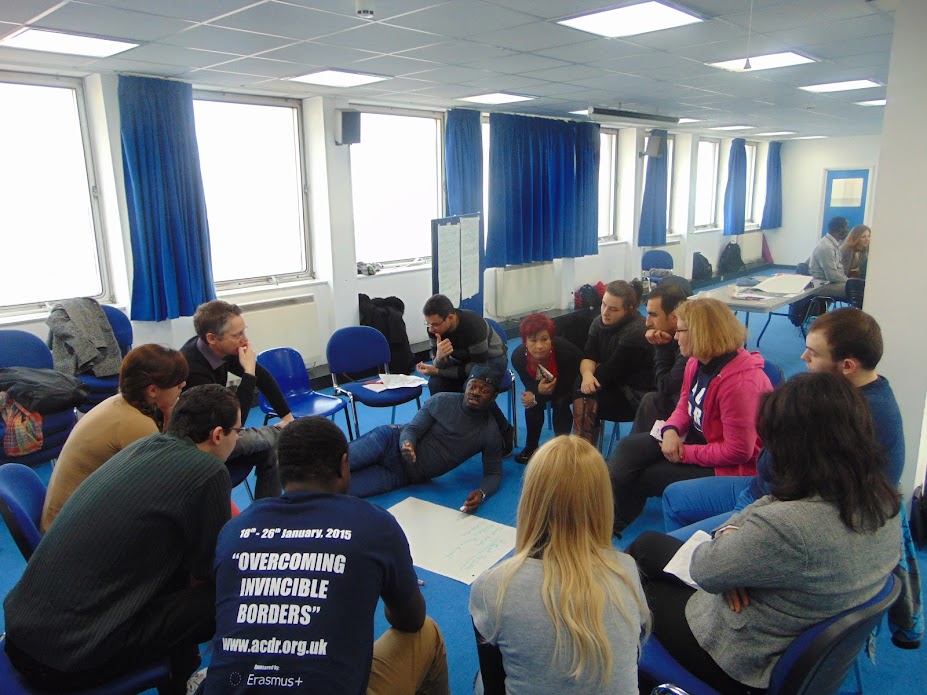Resource Governance And Project Management In International Youth Work; Creating Value For Money

Resource Governance and Project Management in International Youth Work; Creating Value for Money
Over the centuries, people have moved from locations to locations for different reasons across the world including during escaping devastating wars. But in 1951the Treaty of Paris (1951) established the European Coal and Steel Community which gave a right to free movement for workers in these industries and the Treaty of Rome (1957) provided a right for the free movement of workers within the European Economic Community which was assented to by Italy, France, Belgium, Luxemburg and Germany. But in 1992 a more holistic free movement treaty was advanced where EU citizenship as a distinct concept was first introduced by the Maastricht Treaty 1992, and was extended by the Treaty of Amsterdam. Prior to the 1992 Maastricht Treaty, the European Communities treaties provided guarantees for the free movement of economically active persons, but not the generality of EU citizens. But despite the removal of physical borders, the treaty has not fully succeeded in removing invincible borders in people’s mind which are much stronger than difficult to cross than physical borders. There was an assumption that once physical borders are lifted, integration will happen on its own and peradventure people will see themselves as fellow Europeans rather nationals of European countries.

This normative assumption of equal opportunities has not panned out as imagined. The new wave of extreme nationalism and xenophobic attacks in European capitals are pointers to this challenges and a major cause for concerns. The current generation of young people who have always know free movement as part of European concept and whose life will be shaped and affected for another fifty (50) or more years by free movement seems to at the mercy of ultra-nationalist vocal few who overwhelms the media and political space with nationalist political rhetoric and advocates the re-introduction of physical borders. This is happening because when the physical borders were lifted the invincible borders remained in the mind of people borders like xenophobia, fear of demographic changes, identity change, stereotypes etc. and nothing seems to have been done with it for a long time. One of such set-backs was the 10th of February, 2014 referendum in Switzerland which backed the re-introduction or cap on EU migration. This was achieved by the slimmest of margins splitting the country into two. Such referendums are planned in other countries including U.K. Efforts like these erodes the gains of what EU stands for because over the years’ trade seems to have been prioritised over integration and intercultural learning thus allowing people to fully embody the letters and spirit of Maastricht treaty.
The project mobilized young people whose present and future belongs to a functioning and integrated Europe to actively participate in issues that will affect the present and future by getting them of the fence, and enlist them in the team that will advocate for equality for all EU citizens including those who currently endure one form of discriminations or the other e.g. Romanians, Polish and currently Bulgarians to mention a few. The project added value to the efforts at promoting equal opportunities and mutual coexistence which will give the needed platform to enable other participants in the project to synergies across Europe and build networks and collaborations amongst youth platforms and to exchange ideas , innovations on how to deepen European citizenship and integration
- It raised awareness on European citizenship
- It helped to build future partnerships in order to develop partnership projects.
- It helped understand the challenges of human rights issues in their everyday life, to reflect on participants’ own cultural identity, to experience intercultural learning and getting connected through identifying similarities and differences with other young Europeans with different cultural backgrounds, to develop self-confidence, creative and critical thinking and overcome their fear of expressing feelings and opinions, to adopt attitudes of mutual understanding, tolerance and solidarity towards cultural differences in order to build social cohesion within the EU – to discuss and reflect on European culture and point out the importance of participation in the European political processes in 2014
